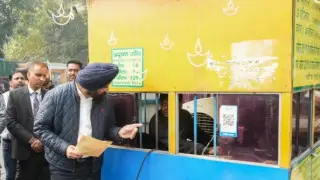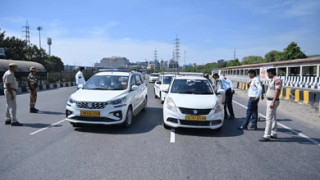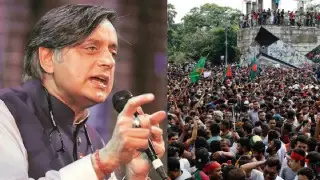
Wikipedia
New Delhi: Situation remains tense after violence erupted at Vishalgad Fort in Kolhapur, Maharashtra during an anti-encroachment drive. On Sunday, miscreants hurled stones at police officers and vandalized public property, leading to a spike in communal tension. The police have registered cases against 500 individuals and arrested 21 people in connection with the incident.
However, there has been a history of violence at the Vishalgad Fort. In 1660, Chhatrapati Shivaji Maharaj sought refuge while again in 1844 there was a conflict against a British appointed Brahmin king who was suppsed to rule Kolhapur region.
Vishalgad Fort holds deep historical significance for the Maratha community, serving as a refuge for Chhatrapati Shivaji Maharaj in 1660. In 1844, the fort witnessed a rebellion against a Brahmin regent appointed by the British during the rule of the Kolhapur State. This historical context adds to the sensitivity surrounding the current tensions.
Vishalgad has a long history as a fort. Under the Bahmani Sultanate, it belonged to the Shirke clan and was known as Khelna. In 1660, Maratha emperor Chhatrapati Shivaji Maharaj sought refuge here after being besieged at Panhala Fort. Centuries later, in 1844, Vishalgad played a role in a rebellion against British rule.
The rebellion stemmed from discontent with a British-appointed regent, Daji Krishna Pandit, who ruled Kolhapur during the minority of the rightful heir. The regent's tax reforms, implemented with guidance from a British political agent, sparked outrage. Despite Kolhapur's neutrality in past wars with the British, this discontent ignited a revolt in 1844. Soldiers stationed in forts like Panhala and Vishalgad mutinied, effectively locking themselves in, and the rebellion soon spread to Kolhapur itself.
The violence began when a group of right-wing activists, including former MP Sambhajiraje Chhatrapati from Pune, were stopped at the fort's base due to prohibitory orders. The situation escalated as stones were thrown at the police, and public property was damaged. The right-wing outfit protested against the authorities' actions, demanding the removal of all encroachments regardless of the encroachers' caste or religion.
Authorities have registered four cases involving 500 people, including some political leaders. So far, 21 arrests have been made, and the search for other suspects continues. Despite the unrest, the anti-encroachment drive proceeded on Monday with heavy security and district administration officials overseeing the operation. By Tuesday, 70 illegal structures had been demolished, with police personnel deployed in large numbers to prevent further incidents.













Copyright © 2025 Top Indian News
